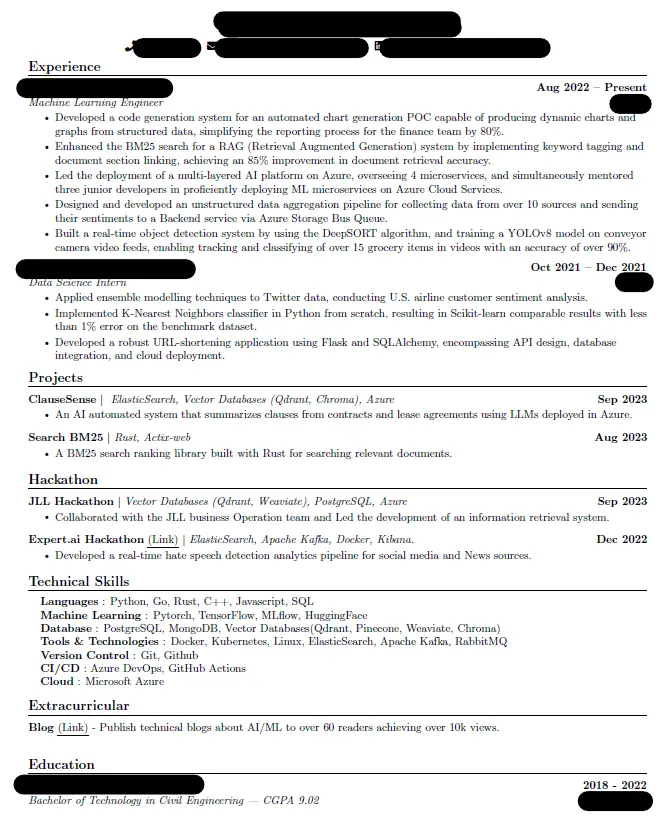My bad. Didn't know where else to put this, so since we have such an amazing community here, I thought of posting it here.
Ok_Cartographer5609
joined 2 years ago
- Read papers/articles/blogs for new and updated models. (I work mostly on Language systems)
- Build POCs using new tools/models that can solve a problem or generate a new one :)
- Get data for this. Handle databases/data stores for storing data, on the cloud.
- Build and deploy pipelines connecting ML services with the databases. And potentially build something which is presentable.
- Monitor for abnormality and if there's any, republish the pipeline once resolved.

Agree. I got into my 1st ML role last year. All self-taught. I've done all sorts of work - from ETL, CV, sentiment pipeline (mostly SWE stuff) and now LLM-based Information retrieval systems. My work mostly revolves around applied ML but I do have an interest in knowing the bits and bytes of ML as well. So currently teaching myself all about transformers and lms.
But it is also true that, earlier getting started with ML was easy - no need for heavy machinery/resources. But nowadays, you will need high computing power to even get started on learning something about large language models.